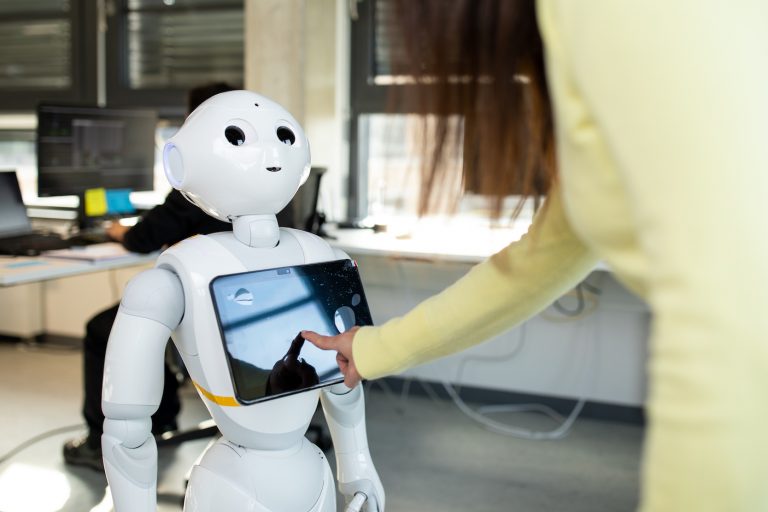Adaptivity in learner-teacher interaction
The development of mutual understanding between learners and teachers is a core component of social interactions. How can these principles be transferred to artificial agents?

©SCIoI
In social interactions between human learners and teachers, it is of central importance that the teacher develops a model of the learner that refers to knowledge, motivation, and emotion of the learner – such a model allows to match tasks and the provision of learning support to the learner. In turn, the learner needs to develop a model of the teacher that informs about the knowledge, teaching style and individual differences such as trustworthiness or patience of the teacher.
The development of such a mutual understanding is a core component of successful social interactions in learning contexts. However, it is empirically not well researched in instructional psychology how learners and teachers build such mutual models of each other–and thus, how adaptive social interactions can be established (Corno, 2008). In robotics, on the other hand, the characteristics of synthetic learners and teachers can be changed and adapted, therefore an open question is how learners and teachers can adapt optimally to the requirements of the task, the current context, and specific characteristics of their interaction partners. In our previous project P06, we examined the principles of adaptive teaching strategies among humans using an Intelligent Tutoring System.
In our new project, we build on the knowledge developed and aim to investigate whether and how these principles can be transferred to social interactions between humans and artificial agents (HRI), and between artificial agents (RRI). Moreover, we examine how an artificial learner can adapt its strategy to characteristics of the learning situation (e.g., task difficulty) to enhance the learning progress. On the analytic side, our project thus allows us to test how tasks can be adapted to learners in highly controlled settings. On the synthetic side, our project will extend knowledge in social robotics about how learner characteristics interact with situational characteristics and whether an “optimal match” between both can enhance knowledge transfer between agents.




